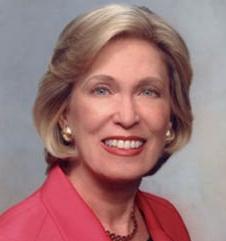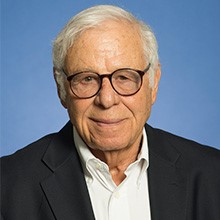The finishing touches are still being made, but the new international airport here on the resort island of Bali is already serving its purpose well. Beyond being a modern gateway to hundreds of thousands of tourists from China and elsewhere, the airport welcomed Chinese President Xi Jinping and thousands of other leaders and delegates in town for last October's annual Asia-Pacific Economic Cooperation (APEC) summit.
One noted exception, of course, was U.S. President Barack Obama. Tied down in Washington in budget battles with the U.S. Congress, Obama chose to skip the APEC summit in Indonesia as well as other key meetings in Brunei, the Philippines and Malaysia.
That was unfortunate for it proved to be a missed opportunity for Obama and his Chinese counterpart to meet and continue to lay the groundwork for strengthened cooperation between the two world's largest economies. Such an effort, even as both nations battle for hearts, minds and allegiances in Asia and the Pacific, will be critical to APEC and to the global economy.
This year, all eyes will be on Xi, and on China again as that nation plays host to APEC. China officially assumed the chairmanship of APEC with the start of 2014 as part of a regular rotation among the 21 Pacific Rim economies that comprise APEC. Leadership then rotates to the Philippines in 2015, and to Peru the year after. Not to be outdone, the White House recently announced that Obama has plans to visit Japan, South Korea, Malaysia and the Philippines this Spring. And of course the U.S. leader is still expected at APEC in Beijing this Fall.
In late-2013, however, the contrasts between the U.S. and China's presidents could not have been starker. Indeed, Xi was widely seen to have “stolen the show” at last year’s APEC summit – more formally known as the economic leaders meeting. That was certainly the view among panelists at an annual briefing on APEC that I moderated in early January at the Asia Society in New York.
Obama’s no show performance at APEC contrasted sharply with Xi's presence and his own somewhat triumphant Southeast Asian tour. In addition to presiding over a range of commercial and diplomatic announcements, Xi also became the first foreign leader to address Indonesia's Parliament, not Obama, who had spent part of his childhood in Jakarta.
Defenders of the U.S. president may well argue that the APEC gathering was once more known for its concluding photo of officials sporting the host country’s national dress than substantive accomplishments, and that Obama's absence did not really matter. As one commentator noted, Obama's absence mattered, but it did not matter that much.
Yet, as the APEC process has matured since its founding in 1989, there is reason for increased U.S. engagement in these and other forums, including at the most senior levels.
APEC member economies by some measures now account for 40 percent of the world population, or some 2.7 billion people; 44 percent of global trade, or some $16.8 billion, and 53 percent of global GDP, or $35.8 trillion. Initiatives stemming from APEC conceivably impact tens of millions of businesses and everyday people’s lives.
Indeed, while there is still room for improvement, APEC now better incorporates in the input of business and other non-government stakeholders. Business executives from Qualcomm, Eli Lilly and Company, and Caterpillar Inc. comprise the U.S. representatives of the APEC Business Advisory Council, a group that makes policy recommendations, undertakes trade and investment promotion activities, and report annually to the APEC leaders. Its members too were no doubt disappointed by Obama's missing out now on two APEC summits in a row. (He had skipped the 2012 meeting, ostensibly due to a scheduling conflict with his own Democratic Party's political convention, though pundits speculated over whether it was over already souring relations with host Russia.)
With China's economic and military advancements, and many questioning the strength of the so-called U.S. pivot to Asia and indeed that of a relatively weakened U.S. president, the United States will need to do more to up its game in the region, including through APEC. This will mean moving beyond the rhetoric and much publicized defense and diplomatic moves that have come to characterize the U.S. pivot – though rebalance is the preferred word of the White House these days – and more fully integrating in commercial, cultural and educational elements.
Indeed, a U.S. business pivot to Asia — entailing greater support for free trade, open skies and substance-beyond-speeches — also should include changes in U.S. tax laws, such as the Foreign Account Tax Compliance Act (FATCA), that now unintentionally hinder the ability of U.S. businesses and entrepreneurs to fully succeed in the Asia-Pacific region and elsewhere around the world.
Using APEC and other forms of multilateral and bilateral engagement in pursuit of the elusive "level playing field for all" will benefit not just U.S. businesses or allies but also others focused on shaping a more peaceful and prosperous Asia and Pacific. For a distracted America, showing up remains half the battle. This is particularly true, as China’s presence — more than that of the United States — is increasingly seen and felt across the region.
Yet, China’s taking the reins of an international forum should not be seen as signaling an assertive “new reign” for China as the essential nation – the Middle Kingdom as it were – at the heart of Asia. That verdict is still out, and certainly not in the cards if Japan Prime Minister Shinzo Abe is to have his way. And that interpretation also is in no one's interest when the reality is that the United States and China, and indeed Japan, Russia and the rest of APEC, can still come together in some areas for the common good.
While media and pundits may well focus on the side stories – whether Obama will miss three APEC summits in a row, having skipped the last two meetings in Indonesia and Russia, or whether the Chinese president might shake hands with Abe, or with the leader of Taiwan — my hope is that this year's APEC process leads to new common ground between the United States and China.
Throughout the year ahead, APEC working groups and senior officials, drawn from diverse economies on both sides of the Pacific, ranging from Chile to Russia, will continue to push efforts to promote free trade and economic cooperation across the Asia and Pacific region, including in such areas as education, food security and the environment. The first senior officials meetings are now taking place in Ningbo, China.
Host nation China also will have the opportunity to shape the agenda with focus areas of its own. In an opinion piece for Fortune, I called for APEC under China to pay greater attention to improving good governance and reducing corruption; to increasing openness and transparency, including in the area of press freedom; and to moving beyond politics and historical wrongs to forge greater regional cooperation and integration.
Herein lies an opportunity for China — with US support — to show that it can play a critical and constructive role in the region. By working with the United States and other APEC counterparts, China can show how far it has come from since when it last hosted the APEC summit in 2001 in Shanghai.
With APEC 2001 and the 2008 Beijing Summer Olympics as precedent and examples, China can certainly put on a good show — and one that is not simply about pageantry but also about showcasing a rapidly changing and increasingly prosperous nation.
Millions of everyday Chinese, particularly in China's rural areas and western regions, still live in poverty. Yet, when it comes to economic development, China has much to be proud of. Hundreds of millions of people have moved out of abject poverty these past decades, following the lifting of state controls and arbitrary economic mandates from on high.
I join others in wishing host country China and the APEC organization a great year ahead. This will mean not just a summit that goes off without any hitches but a year-long APEC process that leads to measurable progress toward greater economic growth and toward greater cooperation across and on both sides of the Pacific Ocean. Peace and prosperity, driven by greater equality of opportunity would be one long-term measure of success.
Yet, as a former diplomat, and as a board member and business person who has worked in development and infrastructure finance across the Asia-Pacific region, I am a realist. The good that an APEC, a World Bank or an Asian Development Bank or a United Nations agency can do is often on the margins when it comes to economic growth and poverty reduction. Countries must help themselves.
But therein also lies an opportunity for the United States and China this year in shaping an agenda for APEC that addresses the true constraints to economic growth — and that is the battle of the "little bric." This is not about the once high-flying "big BRIC" growth markets of Brazil, Russia, India and China, but the bureaucracy, regulations, interventionism and corruption that too often hold economies and organizations back.
As Asia-Pacific economies and economic systems converge, every nation will find its own right balance in each of these areas of the "little bric": How big should the government bureaucracy be? How much regulation is necessary? When must a government intervene? And how much corruption can be tolerated? Each nation or region will find its own way, but one destination is clear: it will be a free, accountable and transparent private sector — even in China and elsewhere amidst the diversity of APEC — that will drive sustainable development and job creation in the long run.
The prescription for growth is often simple: improve the bureaucracy, regulate fairly, intervene rarely and put an end to corruption. Wouldn't it be great if APEC, with China as host and a delegation of senior officials led by the U.S. president, shared that agenda too?
Curtis S. Chin, a former U.S. ambassador to the Asian Development Bank under Presidents Barack Obama and George W. Bush (2007-2010), is managing director of advisory firm RiverPeak Group, LLC. Follow him on Twitter @CurtisSChin.



